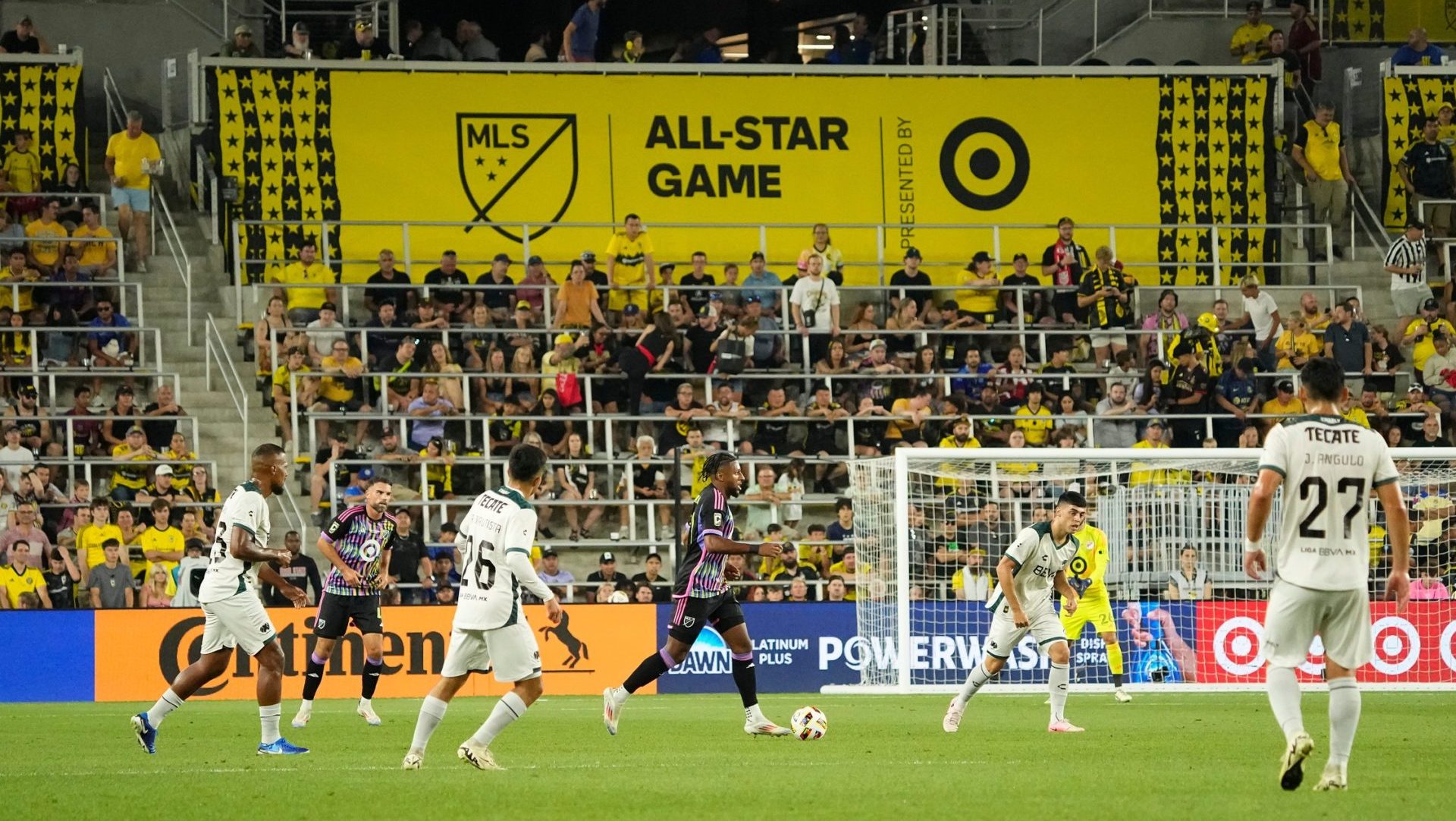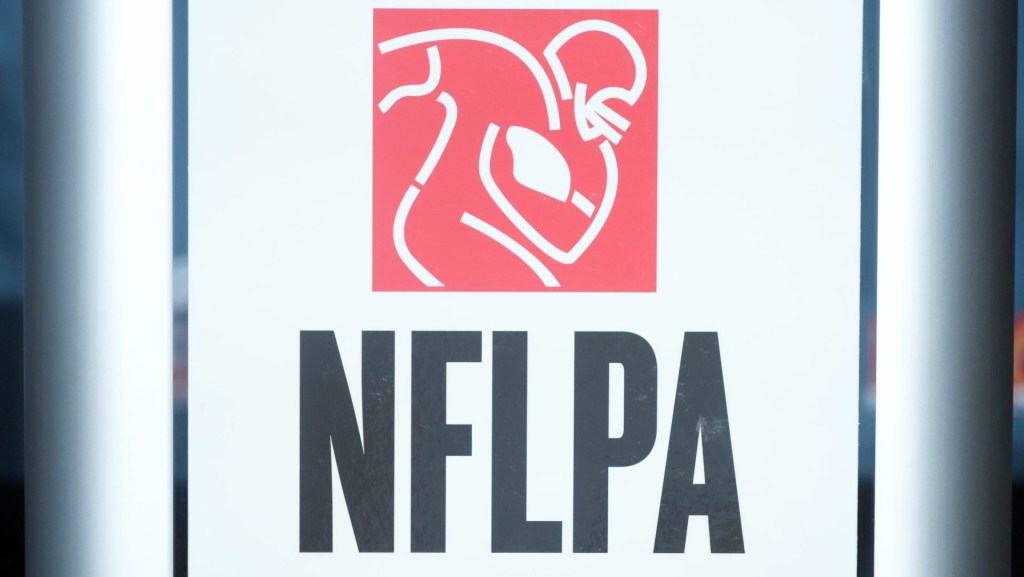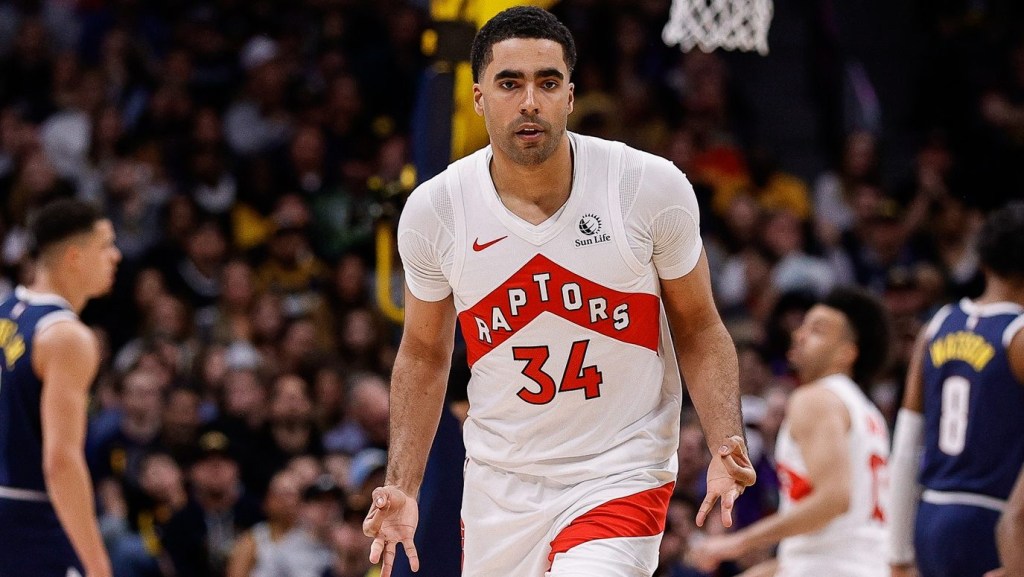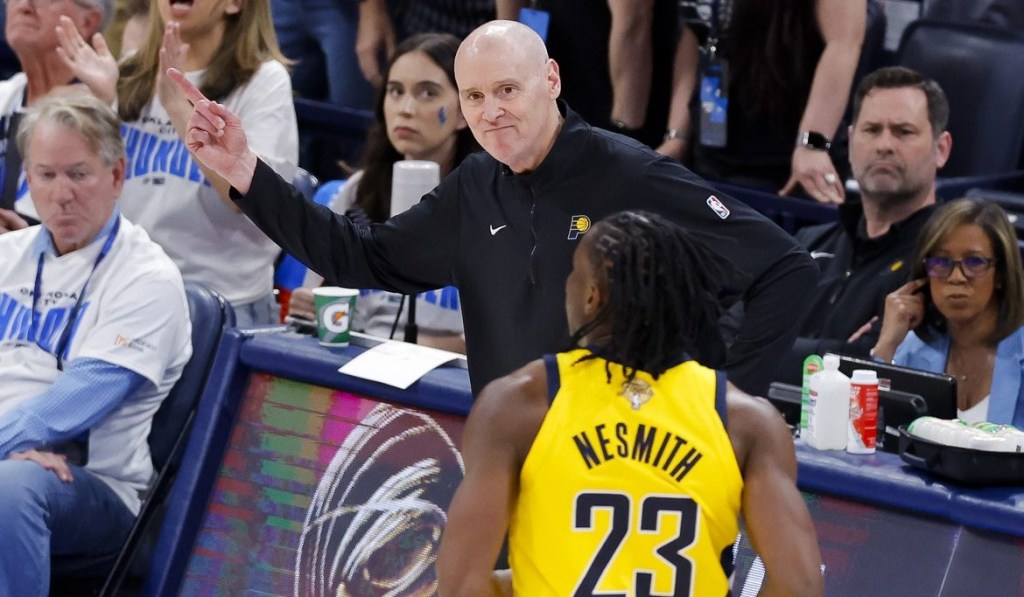During Major League Soccer’s inaugural season in 1996, the fledgling league hosted its first All-Star Game.
Although at the time MLS was still experimenting with format changes—shootouts to break ties, countdown clocks, and other rules that shocked purists—the league’s first All-Star Game took on the traditional format of other major leagues: East vs. West.
At the midway mark of the season, MLS’s Eastern Conference beat the Western Conference 3–2 with goals from Tab Ramos, Giovanni Savarese, and Steve Pittman. If those names don’t ring a bell, you’re not alone: With just 10 teams, MLS lacked the star power to field two separate All-Star teams.
Regardless, the league stuck with the East-West format the following year, then attempted a few other tweaks thereafter.
The first experiment came in 1998, less than a month after the conclusion of the FIFA World Cup. That season, the league rolled out MLS USA vs. MLS World. While the league, which by then had expanded to 12 teams, still had to cobble together two squads for the game, they were divided by nationality. A U.S. squad that had failed to register a point in the World Cup reassembled, more or less, as MLS USA. It proceeded to drub an MLS World squad led by Venezuelan legend Carlos Valderrama, Bolivian striker Jaime Moreno, and Mexican national team goalie Jorge Campos.
The league returned to MLS East versus MLS West for three years, which provided lots of goals for fans—nearly 12 per game. But for the 2002 edition post-World Cup, the league trotted out a similar format to 1998, this time MLS All-Stars versus the United States national team. What followed was a lower-scoring but more exciting seesaw battle that ended 3–2.
In 2003, with little happening internationally, the league invited Mexican side Guadalajara to take on a united MLS All-Star team. A tradition was born, and the league has stuck with a single All-Star team since, though it has tried to raise fan interest by bringing over big-name European teams as opponents. From 2015 through 2019 (and again in 2023), the MLS All-Stars faced established squads including Manchester United, Bayern Munich, Roma, and Real Madrid, going 7–9 in the process.
In 2021, the league tried something new again, pitting its All-Stars against the best players from Mexican soccer’s Liga MX. In the three years of using this format, the MLS has won twice (once on penalty kicks) and lost once.
The 2025 MLS All-Star Game represents the fourth showdown between the MLS and Liga MX All-Stars.
| 1996 | MLS East | 3–2 | MLS West |
| 1997 | MLS East | 5–4 | MLS West |
| 1998 | MLS USA | 6–1 | MLS World |
| 1999 | MLS East | 4–6 | MLS West |
| 2000 | MLS East | 9–4 | MLS West |
| 2001 | MLS East | 6–6 | MLS West |
| 2002 | MLS All-Stars | 3–2 | United States |
| 2003 | MLS All-Stars | 3–1 | Guadalajara |
| 2004 | MLS East | 3–2 | MLS West |
| 2005 | MLS All-Stars | 4–1 | Fulham |
| 2006 | MLS All-Stars | 1–0 | Chelsea |
| 2007 | MLS All-Stars | 2–0 | Celtic |
| 2008 | MLS All-Stars | 3–2 | West Ham United |
| 2009 | MLS All-Stars | 1–1 (3–4 penalties) | Everton |
| 2010 | MLS All-Stars | 2–5 | Manchester United |
| 2011 | MLS All-Stars | 0–4 | Manchester United |
| 2012 | MLS All-Stars | 3–2 | Chelsea |
| 2013 | MLS All-Stars | 1–3 | Roma |
| 2014 | MLS All-Stars | 2–1 | Bayern Munich |
| 2015 | MLS All-Stars | 2–1 | Tottenham Hotspur |
| 2016 | MLS All-Stars | 1–2 | Arsenal |
| 2017 | MLS All-Stars | 1–1 (2–4 penalties) | Real Madrid |
| 2018 | MLS All-Stars | 1–1 (3–5 penalties) | Juventus |
| 2019 | MLS All-Stars | 0–3 | Atlético Madrid |
| 2020 | Cancelled | ||
| 2021 | MLS All-Stars | 1–1 (3–2 penalties) | Liga MX All-Stars |
| 2022 | MLS All-Stars | 2–1 | Liga MX All-Stars |
| 2023 | MLS All-Stars | 0–5 | Arsenal |
| 2024 | MLS All-Stars | 1–4 | Liga MX All-Stars |
| 2025 | MLS All-Stars | Liga MX All-Stars | |





![[Subscription Customers Only] Jul 13, 2025; East Rutherford, New Jersey, USA; Chelsea FC midfielder Cole Palmer (10) celebrates winning the final of the 2025 FIFA Club World Cup at MetLife Stadium](https://frontofficesports.com/wp-content/uploads/2026/02/USATSI_26636703-scaled-e1770932227605.jpg?quality=100&w=1024)











